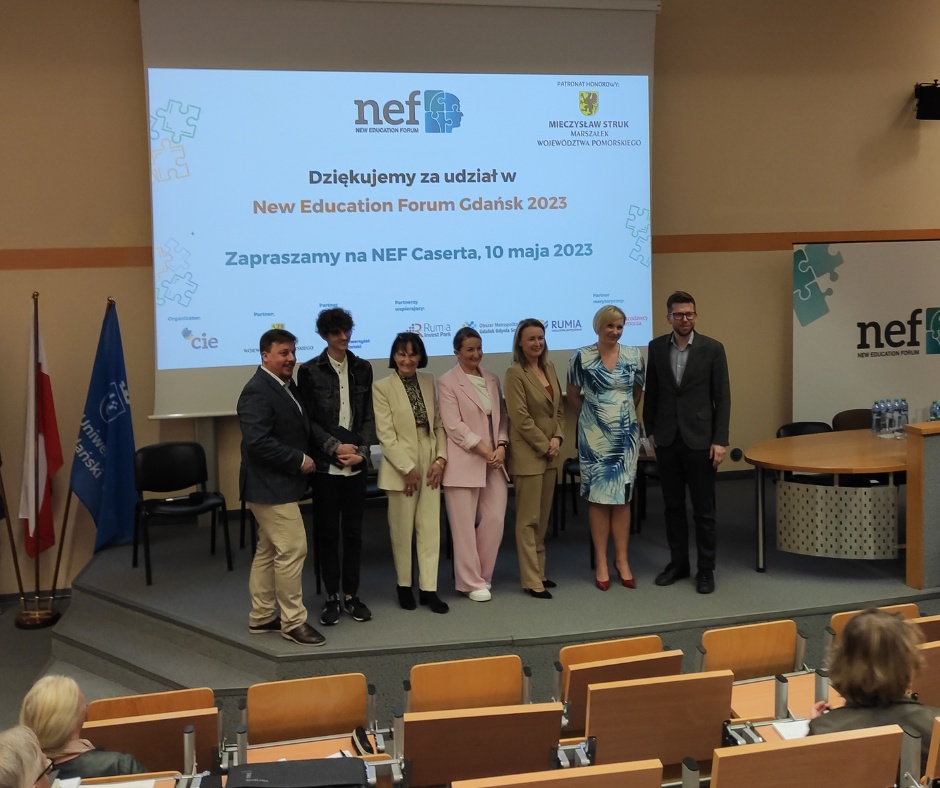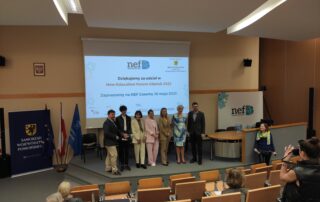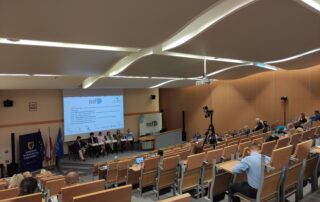What are the main barriers to building an offshore labour market? How to provide practical support for teachers and educators to prepare their students for new professions? Answers to these questions were sought on Tuesday, 18 April by the guests of the panel ‘Metropolis towards offshore development: good practices supporting formal education’ at the New Education Forum Gdańsk. The event was attended by Sylwia Mrozowska, PhD, DSc, Prof of the UG.
The main topics of the New Education Forum Gdańsk, which was organised by the Centre for Innovative Education at the Faculty of Social Sciences at the University of Gdansk, were changes in the Pomeranian labour market in the context of the Digital Education Action Plan, the development of offshore wind energy, the role of local authorities, teachers and students in adapting to the digital and green transition, good practices in digital education and Pomeranian recommendations for the European Year of Skills.
The conference was opened by Mieczysław Struk, Marshall of the Pomeranian Voivodeship, and Arnold Kłonczyński, PhD, DSc, Prof of the UG, Vice-Chancellor for Student Affairs and Quality of Education at the University of Gdańsk, who were invited to the stage by presenter Joanna Bochniarz, CEO of the Centre for Innovative Education.
During the panel ‘Metropolis towards offshore development: good practices to support formal education’, representatives of the socio-economic environment, science and education took part in the discussion. One of the guests was Sylwia Mrozowska, PhD, DSc, prof of the UG, Vice-Chancellor for Cooperation and Development at the University of Gdansk:
“I am very pleased that the Forum is taking place at the University of Gdansk, as all of our faculties educate in subjects that are needed and that will support the development of the sector. I would like to point out that it is not only engineers that will be needed for offshore wind energy. The largest groups of employees will be administrative staff, lawyers, economists, management experts, experts on environmental issues, oceanographers, biologists, but also physicists, such as quantum physicists. As the University of Gdansk, we are very open, we are particularly turning towards those sectors that are developing around us. We feel a responsibility as a university to support the whole region in this difficult transition” said Sylwia Mrozowska, PhD, DSc, prof of the UG.




